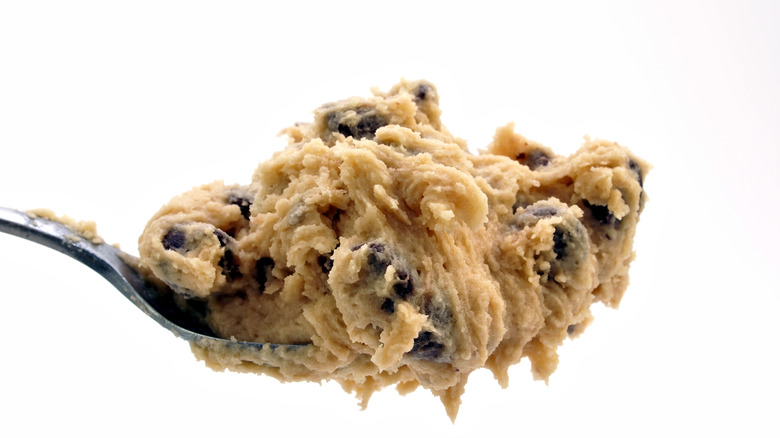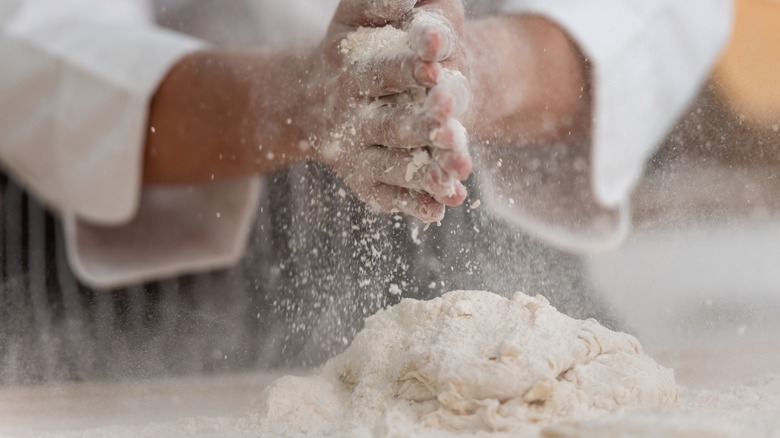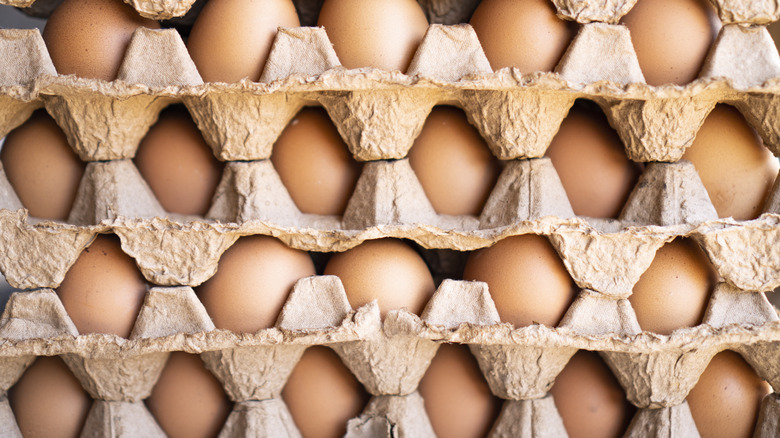What Makes Cottage Cheese Cookie Dough Edible?
We can all remember making cookies as kids and licking the beaters, right? E. coli be damned; childhood memories were being made. Whether it was lemon shortbreads, snickerdoodles, classic chocolate chip, peanut butter, or butter cookies, the allure of that raw cookie dough was always present. Of course, we've grown up and realized that while cookie dough may be delicious, eating it raw isn't a good move. Numerous companies have come up with a workaround and introduced edible cookie dough to the market. These tubs and containers of delight — found in the dairy sections of most grocery stores — are not meant to be transformed into cookies. Rather, they're made to be consumed with a spoon, as one would with the traditional dough — just a little more safely.
If, however, you're not able to go to the market and find a tub of ready-to-eat edible cookie dough, you can make your own at home with a few pretty basic ingredients. Using cottage cheese and almond flour in lieu of the ingredients that have to be cooked can conjure up a delicious dessert.
Swap out the flour with a wheat-free alternative
One of the reasons why eating cookie dough is a no-no is because of the raw flour. Raw flour carries a high risk of food poisoning, as several salmonella and Escherichia coli (E. coli) outbreaks over the past few years have been linked to raw flour, according to the Food and Drug Administration (FDA). The reason raw flour contains these harmful bacteria is because of how its processed. Nasty bacteria, like those that can make us sick, could be present on the raw grain or could be introduced inadvertently during the milling process. Even when the grains are ground, bleached, and processed, the bacteria isn't usually killed off. Any edible cookie dough recipe that contains uncooked, wheat-based flour shouldn't be trusted or followed.
The workaround for flour in edible cookie dough is to utilize almond or coconut flours. Unlike wheat varieties, these two flours are treated to kill harmful bacteria. Coconuts used for coconut flour are processed and dried before being heated to 170 F. Almonds are actually required by law to be heat-pasteurized before they can be processed and ground into flour. So, cottage cheese-based cookie doughs can still have the flour — so long as it isn't wheat-based.
Out with eggs, in with cottage cheese
The second reason traditional, uncooked cookie dough isn't usually safe to eat is due to the raw eggs. Pasteurized raw eggs are, somewhat, safe to eat since the heat will have likely killed any potential salmonella. However, farm-fresh eggs, like those laid from your own brood of hens, can potentially carry this bacteria. Information published by University of Minnesota Extension notes that one in every 20,000 eggs contains salmonella, which, if ingested, can lead to diarrhea, vomiting, cramps, and in extreme cases, death.
Many edible cookie dough recipes swap the cottage cheese for the eggs. Eggs in a traditional cookie recipe are used to provide moistness, rise, richness, and spread. Since you aren't baking this cookie dough, you won't miss out on anything if you skip the eggs. Cottage cheese provides a creamy mouthfeel and helps bind the dough together for a familiar cookie dough texture. Plus, it provides protein (just like the eggs would) and requires no cooking or heating.
So, if you find yourself late at night needing a cookie dough fix, but aren't willing to risk contracting a foodborne illness, make yourself one of the viral, cottage cheese edible cookie dough recipes taking over the internet and indulge without fear.


